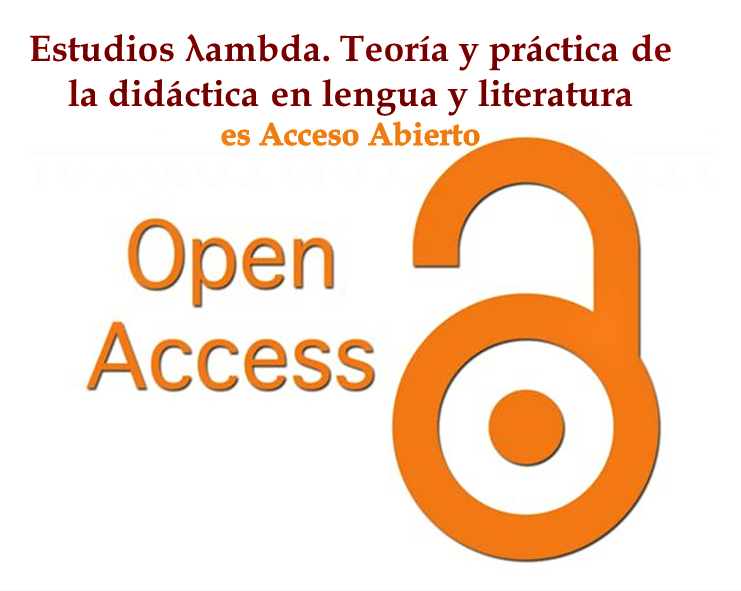New Sensibility and Novel
New Sensibility and Novel
DOI:
https://doi.org/10.36799/el.v2i1.56Keywords:
theory literature, polysystems, new sensibility, didactics of liteatureAbstract
In this lecture I set out the possible consequences that new times, portrayed in new technologies have brought over the arts, mainly on the novel as the emblematic gender in narrative. The point of departure consists of the different avatars that the novel has experimented slowly but surely, sometimes abruptly. Take it for a fact. The particular problem here questions about the amount of transformation to resist before it turns itself into another gender not yet nominated. On the other side, there is evidence that a new dimension and atmosphere of postmodern culture has phased out the novel as central position of the arts. This center is now occupied by a combination of visual arts and its technological paraphernalia, arts in which predominates form over contents and whence the presence of the latter has been diminished. All of this occurs, without still mentioning a great amount of emergent, innovative genders, propitiated some and excited others by the new media supports. We still have to ask about the respective implications on the didactics of literature.
Downloads
References
Bajtín, Mijail. “Épica y Novela” en Teoría y estética de la novela. Madrid: Taurus, 1989.
Barthes, Roland. The Pleasure of the Text. Trad. R. Miller. Nueva York: Hill y Wang, 1975.
Bolter, David Jay, y Peter Grusin. Remediation, Understanding New Media. Boston: MIT Press, 2000.
Booth, Wayne C. Las compañías que elegimos. México: Fondo de Cultura Económica, 1989.
Boulez, Pierre. “Against Hedonism in Musique” referido en Susan Sontag. Against Interpretation.
Cassany Daniel. Leer entre líneas. Barcelona: Anagrama, 2006
Cleger, Oswald. “Pantallas saturadas/cuerpos opacos: la ficción hipertextual en lengua española”, en Leer hipertextos. Del marco hipertextual a la formación del lector literario. Antonio Mendoza (ed.) Barcelona: Octaedro, 2012.
Coover, R. “Hyperfiction: Novels for the Computers”. New York Times Book Review, 1, pp. 8-10, 1998.
Coover, R. “The End of Books”. New York Book Review, 21, junio 1992.
http://.nytimes.com/98/09/27/specials/coover-end,html
Eagleton, Terry. Una introducción en la teoría literaria. (primera edición en castellano 1988, y quinta reimpresión).
Freytag Gustav. Technique of the Drama : An Exposition of Dramatic Composition and Art. Traducción autorizada del alemán al inglés por Elías J. MacEwan. Chicago: Scott and Foresman Company, 1900.
Kundera, Milán. El arte de la novela. España: Tusquets, 1987.
Lukacs, Georgy. El alma y sus formas. Teoría de la novela. México, Barcelona, Buenos Aires: Editorial Grijalbo, 1985.
Mendoza Fillola, Antonio. “Didáctica de la lengua y la literatura: aspectos epistemológicos” (pp. 4- 26), en Didáctica de la lengua y la literatura de Antonio Mendoza (ed.) Madrid: Prentice Hall, 2003.
Moreno, Isidro. Musas y nuevas tecnologías. Barcelona. Barcelona: Paidós Ibérica, 2002.
Schaeffer, Jean Marie. Pequeña ecología a los estudios literarios. Por qué y cómo estudiar la literatura. México: Fondo de Cultura Económica, 2013.
Sontag, Susan. Against Interpretation and Other Essays. Nueva York: Picador, 1990.
Watts, Nigel. Writing a Novel. Londres: Hodder & Stoughton Ltd., 2003.
Zavala, Lorenzo. La ficción posmoderna como espacio fronterizo. Teoría y análisis de la narrativa en literatura y en cine hispanoamericanos. Ciudad de México: Centro de Estudios Lingüísticos y Literarios. El Colegio de México, 2007.
Zohar, Even. Teoría de los polisistemas. www.tau.ac.il/~itamarez/.../EZ-teoria-polisistemas.pdf “Polysystem Theory”. Poetics Today 1979 I, 1-2: 287- 310. Esta versión es la traducción de “Polysystem Theory”, Poetics Today 11: 1 (Primavera 1990): 9-26. Traducción de Ricardo Bermudez Otero.
Downloads
Published
How to Cite
Issue
Section
License
El autor o autores conservan en todo momento sus derechos morales y patrimoniales sobre la obra; la obra no se puede alterar, transformar o ampliar; siempre debe reconocerse la autoría del documento referido. Ninguna de las modalidades de los documentos publicados en Estudios λambda. Teoría y práctica de la didáctica en lengua y literatura tienen fines comerciales de naturaleza alguna.



